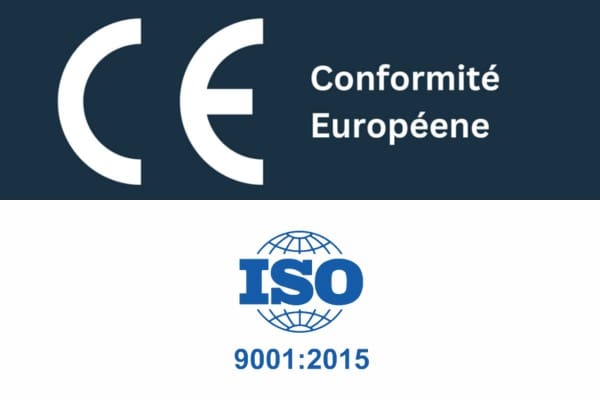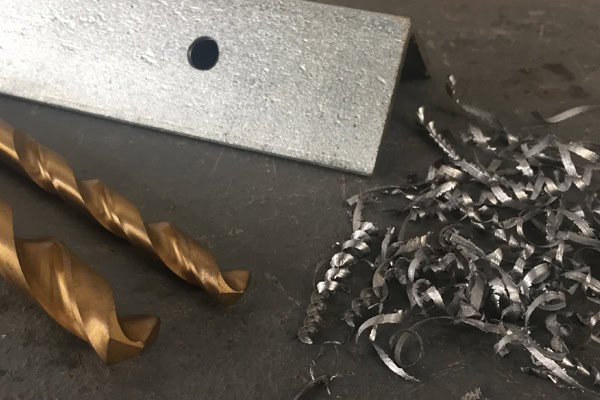When it comes to sourcing high-quality drill bits, the reliability of your supplier is crucial. As someone who has spent years in the tool supply industry, I’ve learned that working with the right supplier can make all the difference. But how do you know which suppliers are worth trusting? This guide will help you navigate the process of finding a reliable drill bits supplier that fits your needs.
When looking for drill bits suppliers, quality is paramount. You want a supplier who consistently delivers durable, precise drill bits that can withstand the demands of your business. Start by prioritizing suppliers with proven track records, industry certifications, and excellent customer reviews. Take your time to research and choose wisely—this decision will impact the longevity of your operations.
Let’s dive in and take a closer look at the key steps in finding the right drill bits supplier for your needs.
Why Quality Matters When Choosing a Drill Bits Supplier?
Choosing the right drill bits supplier is about more than just price. Quality is essential to ensuring that your tools perform well and last longer, reducing downtime and increasing productivity.
Quality drill bits are made from durable materials and designed for precision. A poor-quality bit can cause delays, safety issues, and costly repairs. The right supplier understands the importance of quality and delivers drill bits that meet rigorous performance standards.
Quality is the backbone of any tool, especially drill bits. Think of it like choosing between a reliable car and a cheap, unreliable one. Sure, the cheaper option may save you money upfront, but over time, it will cost you more with repairs, downtime, and inefficiency. When it comes to drill bits1, poor quality can lead to inconsistent results, premature wear, and a higher rate of tool failure.

A reliable drill bits supplier will offer bits that are made from high-quality steel or carbide, ensuring both durability and sharpness. Depending on the material you’re working with—wood, metal, or concrete—the supplier should be able to provide bits specifically designed to handle that material without losing their edge quickly. You also want to check the precision of the drill bits, especially if you’re working on projects that require intricate details.
One of the most common issues I’ve encountered when dealing with subpar drill bits is inconsistent performance. A drill bit that starts off well but quickly loses sharpness can lead to inaccurate drilling and a lot of wasted time. In some cases, it might even result in the damage of the workpiece2, which can cost you even more in material and labor.
The best suppliers not only offer high-quality materials, but they also ensure that the manufacturing process is consistent. This means that every batch of drill bits you receive should be just as durable and reliable as the last. When working with a trusted supplier, you don’t have to worry about getting a “bad batch” of tools.
The importance of consistent quality control is also something I can’t stress enough. Look for suppliers who have stringent testing procedures in place, like hardness testing, to ensure that each drill bit meets the required performance standards. These tests might not be immediately visible to the customer, but they’re an essential part of guaranteeing that you’re getting a quality product every time.
Material Selection and Its Role in Durability
When selecting drill bits, the material they are made from is just as important as the manufacturing process. For instance, tungsten carbide sds drill bits are excellent for cutting through tough materials like concrete, masonry, while high-speed steel (HSS) bits are best for metal, iron, aluminum, stainless steel. Each type of material comes with its own set of advantages and trade-offs. The right supplier should offer a range of drill bits tailored to your specific needs. You should also be able to ask the supplier for advice on the best bits for your job, based on your material and project requirements.
How to Identify Trustworthy Drill Bits Suppliers
Finding a trustworthy drill bits supplier can seem daunting, but it doesn’t have to be. There are clear signs you can look for to identify reliable partners who will meet your needs consistently.
Trustworthy drill bits suppliers maintain transparency, deliver on their promises, and build strong relationships. Look for suppliers with positive reviews, solid communication practices, and a history of meeting deadlines. A reliable supplier should also be responsive to your inquiries and demonstrate a deep understanding of your business.

A trustworthy supplier isn’t just someone who offers competitive pricing—they should also show that they value customer relationships. When vetting suppliers, ask for their references and reviews. A reliable supplier should have a long list of satisfied customers who can vouch for the quality of their products and service.
Additionally, strong communication is key. A good supplier will be easy to get in touch with, whether you need to place an order, ask a technical question, or resolve an issue. They should be proactive in keeping you informed about order status, potential delays, and any product changes.
It’s also helpful to check their delivery and customer service standards. Do they meet deadlines consistently? Are they quick to respond to issues or returns? These are important red flags to consider, and will give you insight into how they handle the day-to-day business of working with customers like you.
A supplier’s reputation can be an excellent indicator of their reliability. If a supplier has been in the industry for many years and has built a loyal customer base, it’s usually a good sign that they are trustworthy and committed to long-term success. It’s always worth taking the time to research and read customer testimonials before you make your final decision.
Supplier Transparency and Openness
Transparency is key when building any relationship. A trustworthy supplier should be open about their processes, delivery times, and any potential issues. If a supplier hesitates to share information or avoids answering your questions directly, consider it a red flag.
You can gauge a supplier’s transparency3 by reviewing their website, checking their customer reviews, or even asking them directly about their manufacturing process. Don’t be afraid to dig deeper; a reputable supplier will be more than happy to share details about how they work, what certifications they hold, and how they handle customer complaints or issues.
The Importance of Certifications in the Drill Bits Industry
Certifications are a key indicator of a supplier’s commitment to quality and reliability. They show that the supplier’s products have passed rigorous tests and meet industry standards.
Certifications like ISO, CE, or ANSI are essential when evaluating a drill bits supplier. These certifications verify that the products you’re purchasing are tested for durability, precision, and safety. Working with certified suppliers ensures that you’re getting the highest quality and that your operations will run smoothly.

Certifications are a great way to validate the claims a supplier makes about their products. For drill bits, certifications like ISO 9001 show that the supplier follows strict quality control procedures and adheres to international manufacturing standards. The CE mark, on the other hand, confirms that the products meet safety standards set by the European Union.
Some suppliers might also hold certifications for specific materials, such as carbide or high-speed steel (HSS), which are essential for producing top-quality drill bits. These certifications4 give you peace of mind knowing that the tools you’re receiving are made to last, perform at a high standard, and are safe to use.
However, don’t just take the supplier’s word for it. You can verify certifications by checking with the certifying body, or by asking for a certificate of authenticity directly from the supplier. It’s always better to double-check than to find out later that you’ve been given subpar products.
When sourcing internationally, you might encounter different certifications depending on the region or market. For instance, in the European Union, the CE certification5 is essential for many tools, while in North America, you might look for certifications like ANSI (American National Standards Institute). Understanding the certifications that matter to your specific market will help you narrow down your options and ensure you’re working with a supplier who meets those standards.
Requesting Samples and Comparing Suppliers Before Making Your Decision
Before placing a large order, always ask for samples to ensure that the drill bits meet your quality standards. This step can save you a lot of trouble in the long run.
Requesting samples is a crucial step in making sure the supplier can deliver the quality you need. By testing the drill bits in your own operations, you can verify the performance and durability before committing to a bulk order.

Think of requesting samples as a “test drive” before making a big investment. No matter how many reviews or certifications a supplier has, you won’t know if their products will work for your specific needs until you try them firsthand.
When testing samples, check for key factors like sharpness, precision, and overall durability6. How well do they handle your material? Do they wear down too quickly? Do they offer consistent results? These are all things you’ll want to assess to ensure that the drill bits are worth the investment.
Additionally, comparing different suppliers is important. Don’t settle for the first option you find. By requesting samples from multiple suppliers, you can compare quality, pricing, and customer service. This will help you find the best overall value for your business.
Understanding Lead Times and Cost Comparison
One final piece of advice when requesting samples is to also compare lead times and costs between suppliers. A supplier who delivers high-quality products on time can save you significant amounts of time and money. Moreover, the cost should be compared across multiple suppliers to ensure you’re getting the best value for your investment.
Conclusion
Choosing the right drill bits supplier is an important decision that can impact the efficiency and success of your operations. By focusing on quality, trust, certifications, and samples, you can make an informed decision that will set you up for long-term success.
-
Here connects users to more detailed information on selecting high-quality drill bits, which is essential for ensuring tool longevity and efficiency. This helps users make informed decisions on their purchases. ↩
-
Offer users insights on how different drill bits impact the material they are working on, and how improper choices can lead to damage, helping them make informed decisions. ↩
-
Direct users to resources explaining why transparency is crucial in supplier relationships, such as fostering trust and ensuring ethical practices. ↩
-
Certifications assure customers that products meet safety and quality standards. Linking "certifications" helps users find specific accreditation details that guarantee the tools’ reliability and safety. ↩
-
Linking this term will help users find authoritative sources explaining what CE certification is, why it matters, and how it ensures compliance with European safety and environmental regulations. ↩
-
Durability is a key concern when selecting tools that will undergo regular use. Adding this link provides readers with a deeper understanding of how different materials, coatings, and construction techniques affect the lifespan of drill bits. ↩